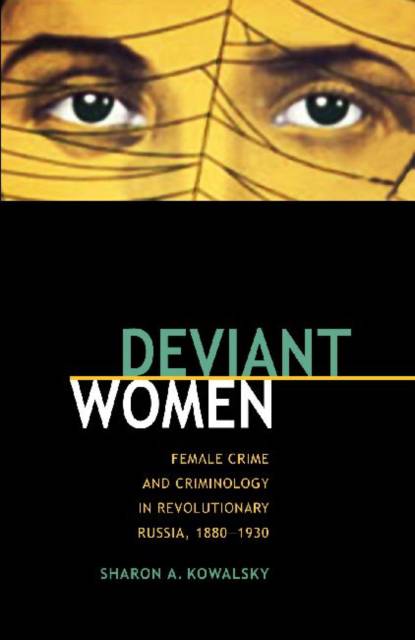
- Afhalen na 1 uur in een winkel met voorraad
- Gratis thuislevering in België vanaf € 30
- Ruim aanbod met 7 miljoen producten
- Afhalen na 1 uur in een winkel met voorraad
- Gratis thuislevering in België vanaf € 30
- Ruim aanbod met 7 miljoen producten
Omschrijving
After seizing power in 1917, the Bolsheviks initiated reforms aimed at abolishing the old way of life in Russia. A new Family Code liberalized marriage procedures, promoted communal living arrangements, and abolished the concept of illegitimacy. Other decrees legalized abortion, deregulated prostitution, and emancipated women. The Bolsheviks' Marxist ideology that guided these reforms was also behind the assertion that crime, an artifact of bourgeois capitalist exploitation, would disappear under socialism. As crime persisted, Soviet criminologists--a cohort of jurists, doctors, sociologists, anthropologists, psychiatrists, statisticians, and forensic experts--were charged with examining its causes and motives to determine the most effective methods to eliminate it.
The problem of female crime occupied a prominent position in criminologists' studies. In explaining "traditional" female crimes of the domestic sphere--infanticide, spouse murder, and petty theft, among others--criminologists pointed to the offenders' backwardness and ignorance, material circumstances, and even biology. Kowalsky examines the position of women in early Soviet society through the lens of deviance, exploring how Soviet criminologists understood female crime and how their attitudes helped shape the development of Soviet social and behavioral norms.
Deviant Women looks at the emergence of criminology in early Soviet Russia, tracing the development of principles and theories--particularly that of female deviance--and highlighting the ways in which criminologists were able to conduct innovative social science research under the constraints of Bolshevik ideology. Kowalsky then focuses on the analyses of female crime and criminologists' attitudes concerning sexuality, geography, and class. Concluding with a close study of infanticide, the most "typical" crime committed by women, Kowalsky discusses the social attitudes that were revealed in the professional discussion of this crime. Historians of modern Russia and the USSR, scholars of gender studies, and those studying criminology will be fascinated by this original study.
Specificaties
Betrokkenen
- Auteur(s):
- Uitgeverij:
Inhoud
- Aantal bladzijden:
- 330
- Taal:
- Engels
- Reeks:
Eigenschappen
- Productcode (EAN):
- 9780875804064
- Verschijningsdatum:
- 15/10/2009
- Uitvoering:
- Hardcover
- Formaat:
- Genaaid
- Afmetingen:
- 160 mm x 234 mm
- Gewicht:
- 635 g

Alleen bij Standaard Boekhandel
Beoordelingen
We publiceren alleen reviews die voldoen aan de voorwaarden voor reviews. Bekijk onze voorwaarden voor reviews.











